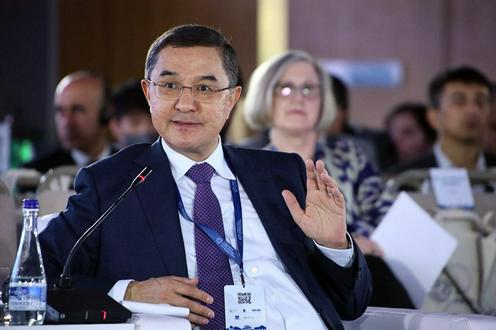Uzbekistan has established a commission on food security, to be headed by Deputy Prime Minister Jamshid Kuchkarov. The announcement was made at a government meeting chaired by President Shavkat Mirziyoyev, according to the president’s press service.
The meeting addressed the use of digital technologies and space data in agriculture. Over the past two years, the Uzbekcosmos Agency has conducted satellite monitoring of more than 4 million hectares of farmland. The analysis revealed discrepancies — in some areas officially designated for cotton, the crop is not being cultivated at all, while other plots are being farmed on reserve or unregistered land. The president ordered the introduction of a remote monitoring system for the use of state-issued agricultural loans.
Speaking on water usage, Mirziyoyev noted that current irrigation standards are outdated and no longer suit the country’s conditions, leaving over 3,000 farmers at the tail end of irrigation canals without access to water. He instructed officials to overhaul irrigation norms and distribution systems with input from scientific experts. Plans are also underway to digitize water management on a parcel-by-parcel basis to simplify tracking and oversight.
A key milestone was the first-ever bathymetric analysis of 60 major reservoirs, which showed that silting has significantly reduced their capacity. The president ordered the installation of smart meters and real-time monitoring systems at all reservoirs.
“Land and water are the future of our entire agricultural sector,” Mirziyoyev emphasized.
As part of Uzbekistan’s digital transformation, a new unified platform called «Digital Agriculture» will be launched. It will allow farmers to independently decide what and how to grow and to monitor their crops, helping to safeguard food security and price stability.
To boost the production of high-demand products, the government will offer concessional loans and subsidies. Over 100 modern agricultural drones will be imported this fall to support fieldwork. The private sector is also expected to play a larger role in offering such services to farmers.
Additionally, work is underway on a legal framework that will prohibit the burning of crop residues.
Given that space-based technologies are also beneficial in other sectors—such as construction, cadastral work, and the management of forests and pastures—ministries and local governments have been instructed to study the available data and develop relevant development plans.
At a previous meeting, the president reported that over the past three years, 250,000 hectares of land formerly used for cotton and grain had been repurposed for growing food crops. In addition, 160,000 hectares of new orchards and vineyards were established, and older plantations were renewed on 107,000 hectares. Around 1,500 food-related projects worth a total of $1 billion have been launched.
Uzbek produce is highly regarded in foreign markets for its natural qualities and excellent taste, helping establish the “Made in Uzbekistan” brand. The country ranks among the global leaders in exports of dried plums, apricots, peaches, raisins, cherries, and legumes. In the first half of 2025, food exports rose by 44 percent to $1.326 billion, with exports expanding to 16 new countries.










